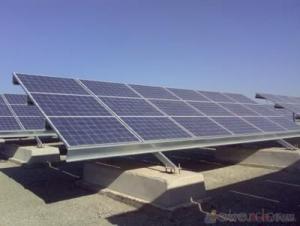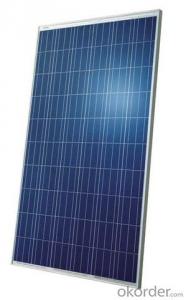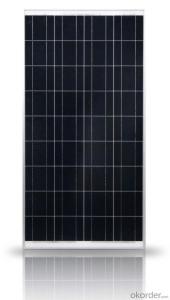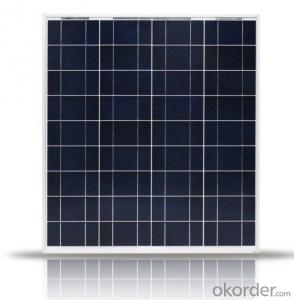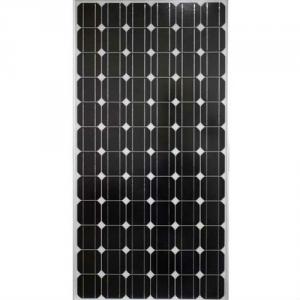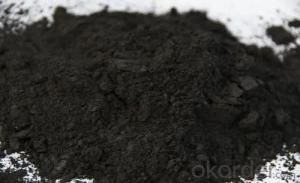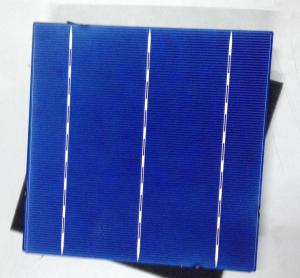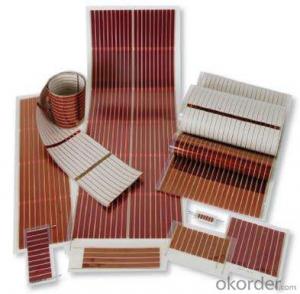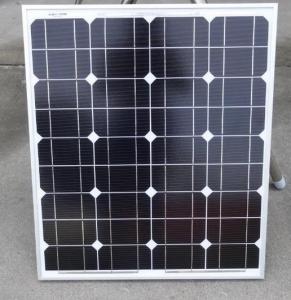Monocrystalline Silicon Solar cell solar panel 250w in China good price
- Loading Port:
- China Main Port
- Payment Terms:
- TT OR LC
- Min Order Qty:
- -
- Supply Capability:
- -
OKorder Service Pledge
OKorder Financial Service
You Might Also Like
Quick Details
| Place of Origin: | Model Number: | ||||
| Material: | Size: | Number of Cells: | |||
| Max. Power: | VOC: | cells: |
Packaging & Delivery
| Packaging Detail: | 22pcs/carton 264pcs/20ft container 672pcs/40ft container |
| Delivery Detail: | within 5 working days |
Specifications
1.250W Monocrystalline silicon solar panel
2.CE,ISO certification
3.excellent in quality and reasonable in price
250W Monocrystalline silicon solar panel/modules
1)High efficiency and good workmanship
2)excellent in quality and reasonable in price
3)High transmission rate,low iron and tempered glass
4)solar panel have high wind,easy installation and long life
5)Life time:20-25 years
6)Tempered glass laminated with aluminum frame
7)Construction
a)Front:high-transmission low-iron tempered glass
b)Back:TPT
c)Encapsulant:EVE
d)Frame:aluminum
e)Certification:CE ISO9001
- Q:Can solar cells be used for powering irrigation systems?
- Yes, solar cells can be used to power irrigation systems. Solar panels can generate electricity from sunlight, which can then be used to power the pumps and other components of irrigation systems. This renewable energy source is environmentally friendly and can provide a reliable and sustainable solution for powering irrigation systems in remote areas or locations without access to conventional power sources.
- Q:Can solar cells be used in underwater applications?
- Yes, solar cells can be used in underwater applications, but they require special design considerations.
- Q:What is the future of solar cells?
- The future of solar cells looks promising as advancements in technology continue to improve their efficiency, affordability, and scalability. With ongoing research and development, we can expect solar cells to become even more efficient in converting sunlight into electricity, allowing for increased energy production. Additionally, innovations such as flexible and transparent solar cells may expand their applications beyond traditional rooftops and solar farms. As the world's demand for renewable energy grows, solar cells are likely to play a crucial role in meeting our energy needs and transitioning towards a sustainable future.
- Q:Can solar cells be used for powering electric vehicle charging stations?
- Yes, solar cells can be used to power electric vehicle charging stations. Solar panels can generate electricity from sunlight, which can then be used to charge electric vehicles. This not only promotes the use of renewable energy but also reduces the carbon footprint of electric vehicles by eliminating the need for grid electricity.
- Q:Friends are fuel cells are chemical energy into electricity, solar cells are converted into electricity into electricity I would like to know in addition to the structure and the conversion of different ways there are no other differences hope that the specific power of everyone
- Fuel cell is very complex, involving chemical thermodynamics, electrochemistry, electrocatalysis, materials science, power systems and automatic control and other disciplines of the theory, with high power generation efficiency, less environmental pollution and so on.
- Q:What is the impact of saltwater exposure on solar cell efficiency?
- Saltwater exposure can have a significant negative impact on solar cell efficiency. The saltwater can corrode the metal components of the solar cells, leading to a decrease in their performance and overall efficiency. Additionally, the saltwater can create a conductive pathway that can bypass the solar cells, resulting in a loss of electrical energy. Therefore, it is crucial to protect solar cells from saltwater exposure to maintain their efficiency and prolong their lifespan.
- Q:Can solar cells be used in areas with high pollution?
- Yes, solar cells can be used in areas with high pollution. However, it is important to note that pollution can have a negative impact on the efficiency and performance of solar cells. Airborne pollutants, such as particulate matter and smog, can reduce the amount of sunlight reaching the cells, thereby decreasing their output. Regular maintenance and cleaning may be required to ensure optimal performance in polluted environments. Additionally, advanced solar cell technologies and designs are being developed to mitigate the effects of pollution and improve their efficiency in such areas.
- Q:Can solar cells be used in emergency lighting?
- Yes, solar cells can be used in emergency lighting. Solar cells convert sunlight into electricity, which can then be stored in batteries for use during emergencies or power outages. This makes solar-powered emergency lighting a reliable and sustainable option.
- Q:Can solar cells be used for water desalination?
- Yes, solar cells can be used for water desalination. Solar-powered desalination systems harness the energy from sunlight to convert seawater or brackish water into fresh water. This process is known as solar desalination and involves using solar panels to generate electricity, which in turn powers the desalination system. Solar desalination offers a sustainable and environmentally-friendly solution to address water scarcity in regions with abundant sunlight.
- Q:Can solar cells be used in powering e-bikes?
- Yes, solar cells can be used to power e-bikes. Solar panels can be mounted on the bike's frame or incorporated into accessories like panniers or baskets. These panels convert sunlight into electricity, which charges the bike's battery, providing a renewable and sustainable source of power.
1. Manufacturer Overview |
|
|---|---|
| Location | |
| Year Established | |
| Annual Output Value | |
| Main Markets | |
| Company Certifications | |
2. Manufacturer Certificates |
|
|---|---|
| a) Certification Name | |
| Range | |
| Reference | |
| Validity Period | |
3. Manufacturer Capability |
|
|---|---|
| a)Trade Capacity | |
| Nearest Port | |
| Export Percentage | |
| No.of Employees in Trade Department | |
| Language Spoken: | |
| b)Factory Information | |
| Factory Size: | |
| No. of Production Lines | |
| Contract Manufacturing | |
| Product Price Range | |
Send your message to us
Monocrystalline Silicon Solar cell solar panel 250w in China good price
- Loading Port:
- China Main Port
- Payment Terms:
- TT OR LC
- Min Order Qty:
- -
- Supply Capability:
- -
OKorder Service Pledge
OKorder Financial Service
Similar products
New products
Hot products
Hot Searches
Related keywords
